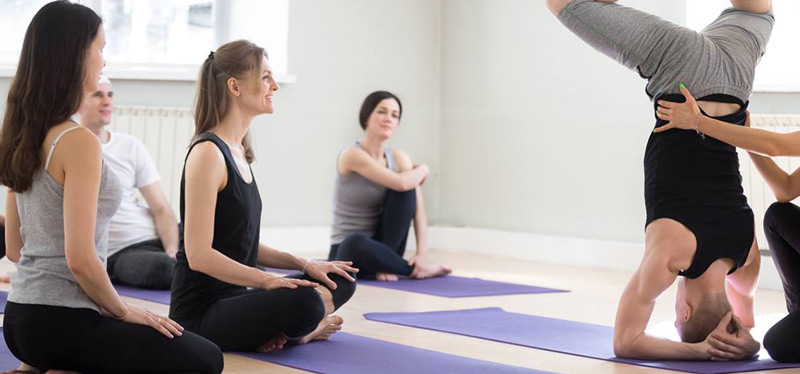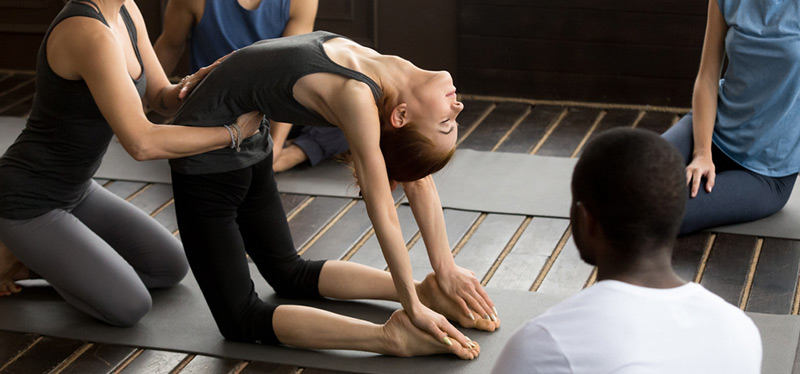Physical touch. Consent. These are loaded words in our culture today. What place do these words have in the yoga studio?
Some love assists. Others loathe them.
And for good reason.

Physical touch has historically been a big part of yoga but over recent years, abuse in the yoga industry has come to light, making it controversial. Maybe even taboo in some places. Instructors are afraid they may injure someone. Or offend them. Or worse, that their assist may be misinterpreted as a sexual advance.
But some instructors don’t like giving assists for their own personal reasons: They aren’t big touch people. They have sensory issues. The idea of touching someone’s sweaty skin grosses them out. Or, their own personal story involves some difficult and painful experiences with touch.
Some folks have been injured by well meaning but overbearing instructors giving them more of a chiropractic adjustment than a simple, gentle gesture to support their practice. Some folks have been violated during an assist. And for some, touch triggers traumatic memories they wish they could run from forever.
These are the many complexities of touch in the yoga studio. And it’s time we start the dialogue.
These complex layers should be respected by both clients and instructors, while at the same time holding space for people who enjoy the benefits that hands-on assists can offer. After all, there can be a bond that happens when touch is involved that can be a beautiful and enriching experience for the instructor and student alike.
In the current social climate, touch has become a dirty word. I sometimes wonder if the lack of physical interaction we have with one another might be a contributing factor to, or perhaps a result of, the increasing social isolation in the West. When my son gets in trouble for play wrestling with his buddies at school, something doesn’t seem quite right. Healthy, positive touch releases endorphins that can improve our mental well being. The absence of touch can have profound affects on attachment for both children and adults as evidenced by numerous research studies. Yet in the same way, touch that is unwanted and/or forced can do a great deal of harm.

So where do yoga instructors contribute to this social dialogue about physical touch and consent? Sure, people come to yoga to get physically fit but the reasons don’t end there. People come to yoga looking for a safe place. A place to heal. A place to seek refuge. Instructors, have the to opportunity to aid in the healing journey of their students by offering them the choice about whether or not they want a hands-on assist.
But empowerment doesn’t end with our clients. Instructors need to be empowered as well.
Instructors, need to feel respected and valued regardless of whether or not they offer hands-on assistance to clients. A “yes” card doesn’t mean that an instructor will give that client an assist. Maybe the instructor doesn’t feel like it that day. Or maybe they don’t want the pressure of giving everyone an assist. Maybe they run out of time. Or maybe they just don’t give assists. And that’s okay too.
Consent is a dialogue and both parties have to agree to it… or it’s not consent! The introduction of consent cards allows us to have this dialogue with our clients without getting into a potentially awkward conversation. A client flips the card to yes or no. Enough said. And they can change their mind at anytime. Maybe they don’t want an assist during the active part of class but would sure love a little massage during Savasana.
Touch is personal. Consent cards attempt to hold space for people to be empowered – both instructors and clients.